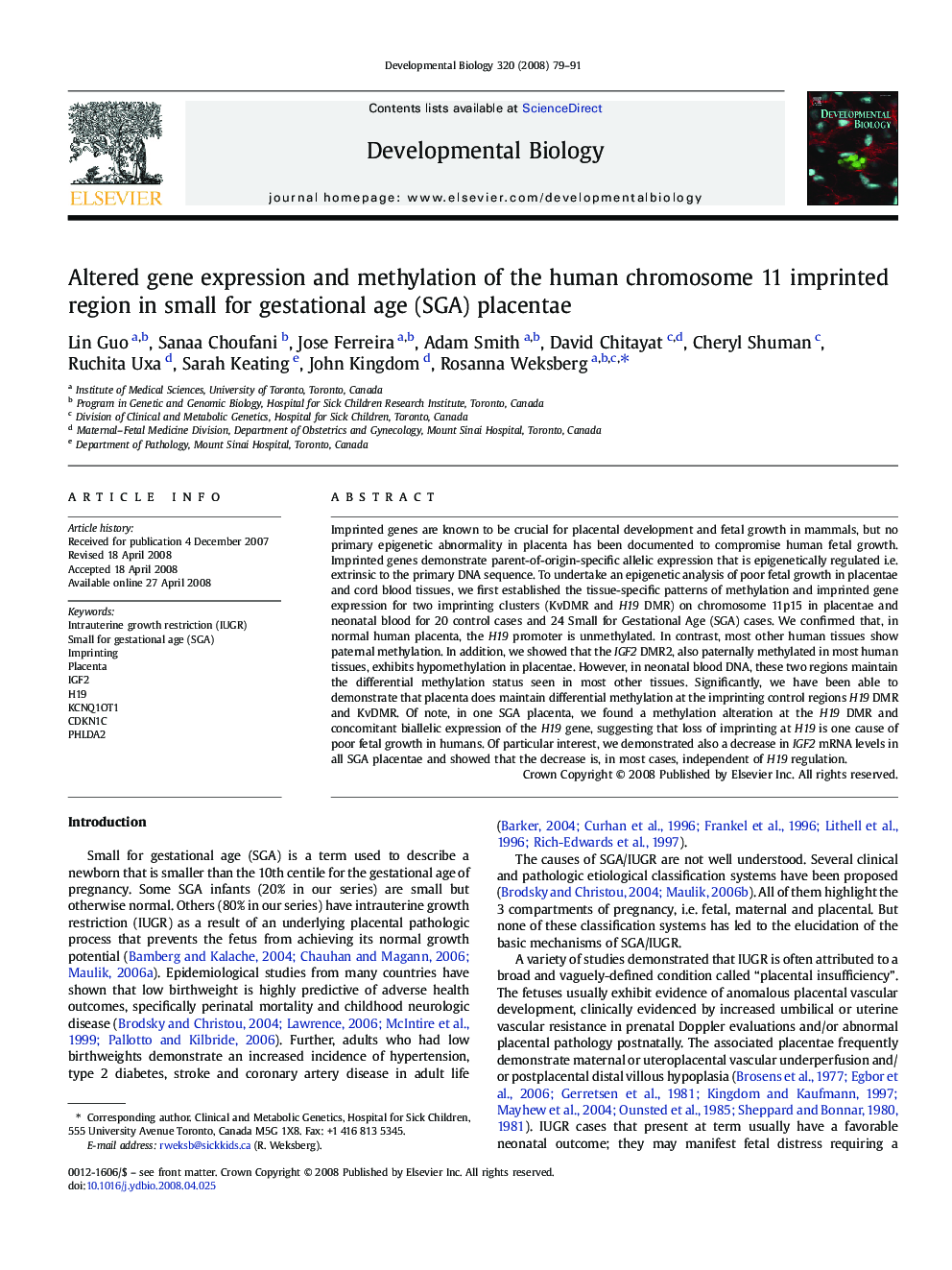| Article ID | Journal | Published Year | Pages | File Type |
|---|---|---|---|---|
| 2174544 | Developmental Biology | 2008 | 13 Pages |
Imprinted genes are known to be crucial for placental development and fetal growth in mammals, but no primary epigenetic abnormality in placenta has been documented to compromise human fetal growth. Imprinted genes demonstrate parent-of-origin-specific allelic expression that is epigenetically regulated i.e. extrinsic to the primary DNA sequence. To undertake an epigenetic analysis of poor fetal growth in placentae and cord blood tissues, we first established the tissue-specific patterns of methylation and imprinted gene expression for two imprinting clusters (KvDMR and H19 DMR) on chromosome 11p15 in placentae and neonatal blood for 20 control cases and 24 Small for Gestational Age (SGA) cases. We confirmed that, in normal human placenta, the H19 promoter is unmethylated. In contrast, most other human tissues show paternal methylation. In addition, we showed that the IGF2 DMR2, also paternally methylated in most human tissues, exhibits hypomethylation in placentae. However, in neonatal blood DNA, these two regions maintain the differential methylation status seen in most other tissues. Significantly, we have been able to demonstrate that placenta does maintain differential methylation at the imprinting control regions H19 DMR and KvDMR. Of note, in one SGA placenta, we found a methylation alteration at the H19 DMR and concomitant biallelic expression of the H19 gene, suggesting that loss of imprinting at H19 is one cause of poor fetal growth in humans. Of particular interest, we demonstrated also a decrease in IGF2 mRNA levels in all SGA placentae and showed that the decrease is, in most cases, independent of H19 regulation.
